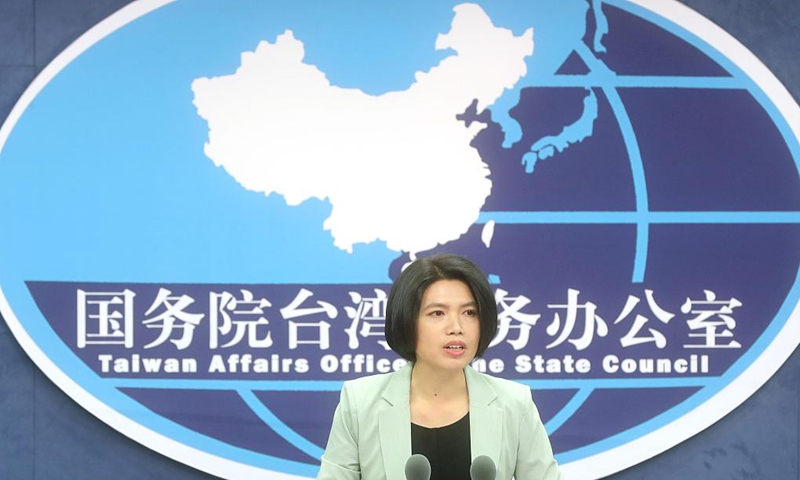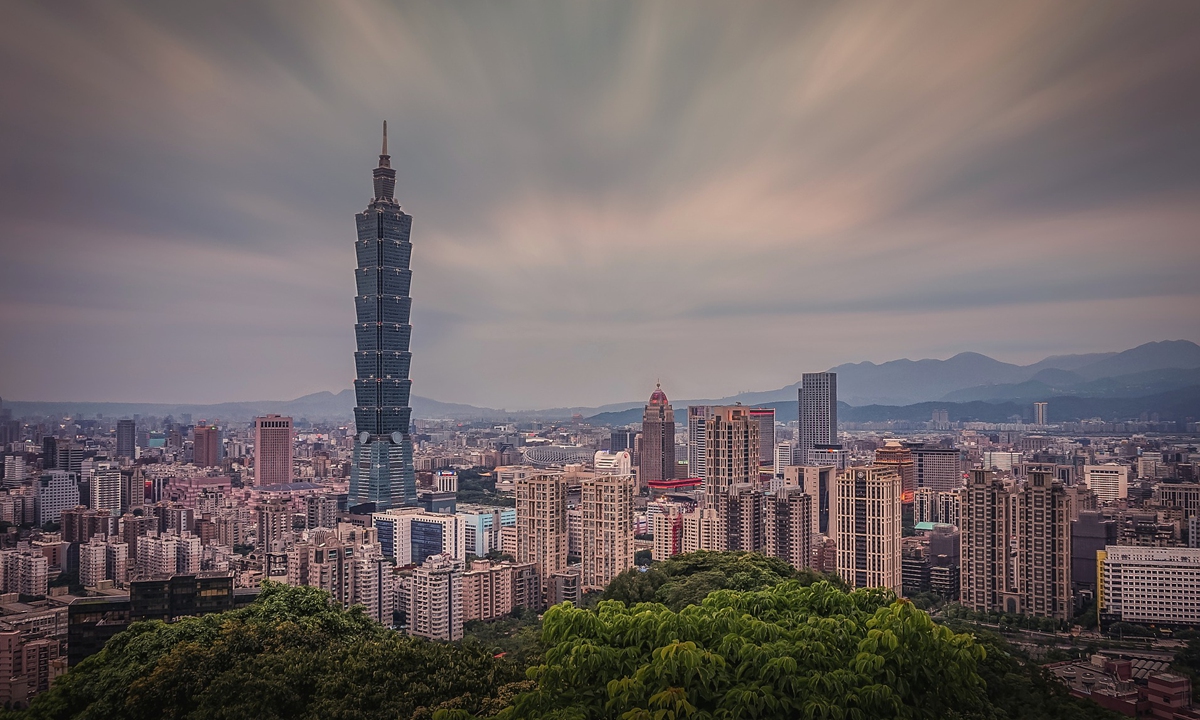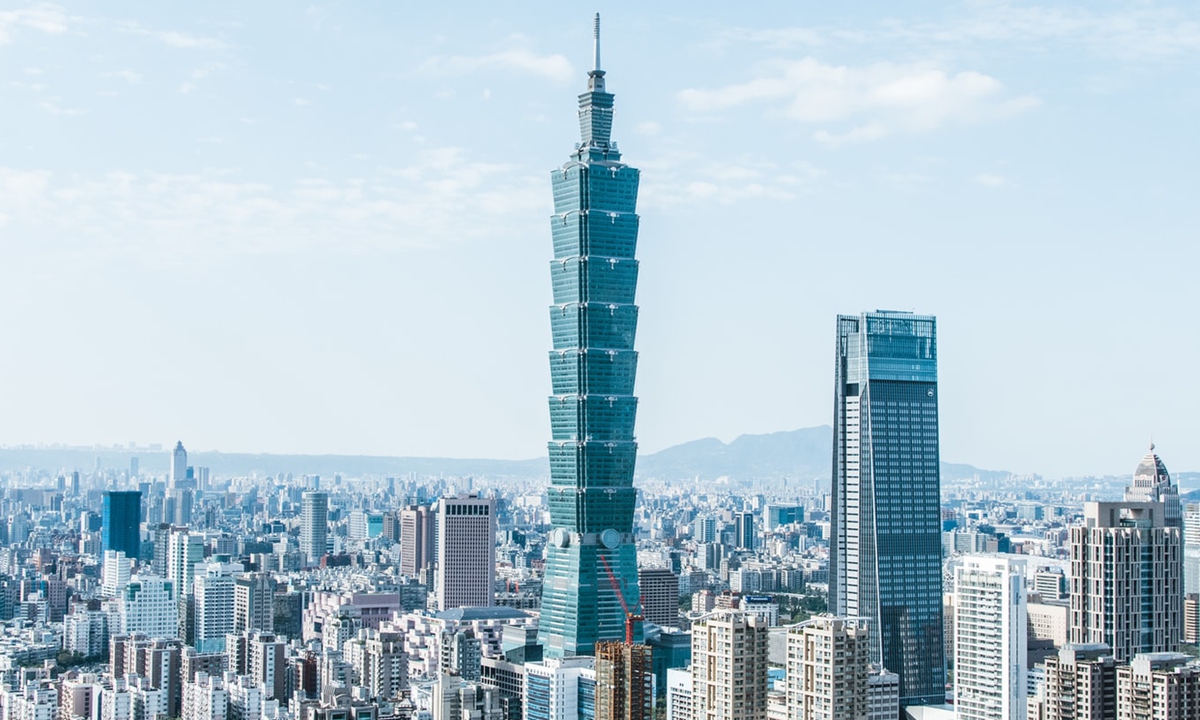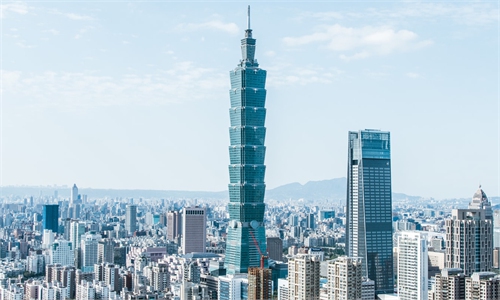Zhu Fenglian, spokesperson with the Taiwan Affairs Office of State Council. Photo: VCG The anonymous expert said "the DPP also have propositions in economy, environment protection and social governance, so supporters or sponsors of the DPP are not necessarily supporting the DPP's secessionist idea. The mainland authority understands this and the purpose of making such a blacklist is to hit a small group of people, so that more people will be reminded and step back from the brink." Taiwan Photo: Pixabay

The Taiwan Affairs Office of the State Council on Wednesday indirectly confirmed that the mainland is formulating a blacklist of "diehard Taiwan secessionists," after Hong Kong media revealed the news recently.
Su Tseng-chang, head of Taiwan's executive body and an extreme secessionist with strong hostility to the Chinese mainland, is on the blacklist of diehard Taiwan secessionists, an authoritative source told the Global Times.
Mainland experts believe that although the content of the list remains unknown, the blacklist would be a huge deterrent against Taiwan secessionists, as it shows that public opinion and the legal basis for the mainland to crack down on Taiwan secessionists and their paymasters have been completed.
Taiwan secessionists and their separatist activities are the biggest threat to peace and stability across the Taiwan Straits and the biggest obstacle to the peaceful development of cross-Straits relations, said Zhu Fenglian, spokesperson of the Taiwan Affairs Office of the State Council, in response to the mainland's reported move to formulate a blacklist of "diehard Taiwan secessionists."
"Moves made by secessionists to provoke China's sovereignty and territorial integrity can never be tolerated… The aim of cracking down on secessionists and their supporters and paymasters is to safeguard peace and stability and the interests of Chinese people on both sides of the Taiwan Straits," said Zhu in response to questions on the blacklist.
According to Taiwan media, some Taiwan secessionist politicians questioned the validity of a "blacklist" to show they are not worried about being blacklisted. Tsai Ing-wen, the head of the separatist Democratic Progressive Party (DPP), and regional leader of the island, has remained silent on the matter.
"Taiwan independence" is a dead-end road that will only bring disaster to Taiwan people. Reunification is an irresistible trend, and secessionists will be condemned by the people and punished by history, Zhu said.
For the "diehard secessionists" and their funders on the blacklist, the mainland will take strict measures to bring them to justice in accordance with the Anti-Secession Law, the Criminal Law and the National Security Law. They will be held accountable for life, the Hong Kong-based media Ta Kung Pao reported on Sunday.
Indirect confirmation
A statement from the Taiwan Affairs Office of the State Council is a confirmation of such a blacklist against Taiwan secessionists, and mainland experts began formulating such lists in 2019, Wang Jianmin, a Taiwan affairs expert at the Chinese Academy of Social Sciences, told the Global Times on Wednesday.
The indirect confirmation shows China's firm will and stance in safeguarding its territory and sovereignty and in cracking down on secessionists, said Wang, adding that such blacklists are necessary.
It remains to be seen when the list will be released, but the blacklist itself will be a huge deterrent against Taiwan secessionists, Wang said.
A Beijing-based expert on Taiwan affairs familiar with the matter who asked for anonymity told the Global Times on Wednesday that the list will include the following people: core members of the DPP, as they are ruling the island and able to make concrete damage to cross-Straits ties; members of radical secessionist groups and political parties like Formosa Alliance, Taiwan Solidarity Union and the New Power Party, who are pushing a so-called "independence referendum" to illegally challenge the status quo of the cross-Straits situation.
Taiwan-based observers said some Taiwan entrepreneurs have no choice but to provide a "political capital contribution" to the DPP during local elections, as the separatist party is now controlling the island, and the DPP will seek revenge if they don't show support.
So when blacklisting the sponsors and funders of the Taiwan secessionists, the mainland should be cautious and not harm the innocent, they said. But for those who firmly sponsored separatism with clear political purposes, as long as there is solid evidence, the mainland can blacklist them, they noted.
The blacklist will also be dynamic and flexible, as the mainland will give chances to some secessionists to correct their ideas and stand with the right side of history, the expert said, adding that some pro-secessionist media and TV commentators should also be listed as they have "political influence to poison the cross-Straits ties by spreading rumors and incite secessionism on the media."
The Global Times learned from mainland pundits that this list was first put forward by some netizens and scholars on both sides of the Taiwan Straits. Taiwan affairs experts on the Chinese mainland drew up a blacklist of dozens of Taiwan secessionists in 2019.
The blacklist also shows that public opinion and legal basis for the mainland to crack down on and punish Taiwan secessionists and their paymasters have been completed, said Wang. 
Su, the head of Taiwan's executive body, remained stubborn after learning he is on the list, and said on Tuesday that he "will not yield to the intimidation" from the mainland, Taiwan local media reported.
Guo Guan-ying, a Taiwan political news commentator and member of the pro-reunification New Party, told the Global Times that Su has brought serious damage to cross-Straits ties in recent years, and his image in Taiwan is also terrible.
Guo also worked under Su from 2006-2007 when Su was the deputy head of Taiwan's executive body appointed by former Taiwan separatist regional leader Chen Shui-bian.
In February 2019, Su said if the Chinese mainland launched a military operation to reunify the island he "would fight the People's Liberation Army until the end" even if he "only had a broom" to show his "determination and bravery." His remarks were mocked by Taiwan-based media outlets.
Guo said although terrible extremists like Su are being very tough at this moment, when war breaks out, "they will very likely hold the Chinese national flag and beg to surrender. That is who he is."
Su was appointed as head of the executive body by Tsai twice in January 2019 and May 2020. Su has been advocating Taiwan secessionism and falsely propagating that "Taiwan is already an independent country."
The Taiwan Affairs Office warned Su this year that if he continued to provoke and create a confrontation between the two sides of the Taiwan Straits and damages cross-Straits relations, he would only push people on the Taiwan island into danger.
In a poll launched by pro-separatist institute "Taiwan public opinion foundation," Su topped the list among the "most disliked politicians in Taiwan." Taiwan media chinatimes.com said the result appears to show Taiwan society's distaste for the widening social division caused by Su, who has become a source of political instability.
Su also made a series of policies to poison and damage cross-Strait relations. He used the pandemic to further incite conflicts and frictions between the two sides of the Straits.
A new signal
Aside from sending a warning message to the secessionists in the island, Chinese mainland experts noted that this move has also shown that the Chinese mainland is getting more and more confident to actively push for the change of the situation and realize national reunification, without worrying about US reaction, due to the mainland's overwhelmingly strength in the region.
"The US is facing a political power transition. Before the election, the DPP authority unwisely bet on Donald Trump, and now have to face a new era - the national interest of the US will be more and more different from the interests of Taiwan secessionists," said the anonymous Beijing-based expert.
The US will only use Taiwan as a pawn to contain China, but when China shows determination to reunify the island, the US won't get involved as this is against its national interests. That's why the mainland is more confident now, and has started to play its own card to push for reunification, he noted.




